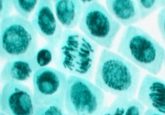Brain tumors in Li-Fraumeni syndrome: a commentary and a case of a gliosarcoma patient

Li-Fraumeni syndrome (LFS) is a rare family cancer syndrome, characterized by an autosomal dominant transmission that increases an individual’s risk of developing early synchronous and metachronous primary tumors. Classic LFS is associated with the development of sarcomas, diagnosed before 45 years of age with a first-degree relative with cancer before 45 years of age, and another close (first- or second-degree relative) with any cancer diagnosed less than 45 years of age or with sarcoma at any age. The typical tumors include breast carcinoma, soft tissue sarcomas, osteosarcoma, CNS tumors, adrenocortical carcinoma (ACC), lung cancer and leukemias. Classic LFS has an approximate frequency of 70% compared with whole cancer-predisposition syndromes [1–4].
According to the Chompret criteria, around 25% of families show a Li-Fraumeni-like syndrome (LFL) which includes the following: high-risk sarcoma, brain tumor, breast cancer and ACC before 36 years of age and cancer under the age 46 years in first- or second-degree relatives or multiple primary tumors, including two of the previous tumors or ACC at any age. Almost 60% of LFS patients who present primary tumors in pediatric age will develop a secondary malignancy in the following 30 years [1,3,5].
The LFS and LFL syndrome are linked to germline mutations of the TP53 tumor suppressor gene located on chromosome 17p13.1. This mutation is present in 70–80% of LFS families and in 20–40% LFL families. Somatic TP53 mutations have been reported to occur in almost every type of cancer, suggesting that this event is required for the malignant transformation of several human cells. TP53 is a particular transcription factor that normally regulates the cell cycle, apoptosis, genomic stability and inhibition of angiogenesis through many mechanisms. TP53 gene-mutated cells can no longer utilize a functional TP53 protein to repair DNA or initiate a normal apoptosis. LFS is inherited in an autosomal dominant pattern, meaning that one copy of the mutated gene in each cell is enough to increase the risk of developing a tumor. However, around 25% of LFS patients do not have any family history of the condition and have a de novo mutation in the TP53 gene [1,5].
Click here to read the full article.





